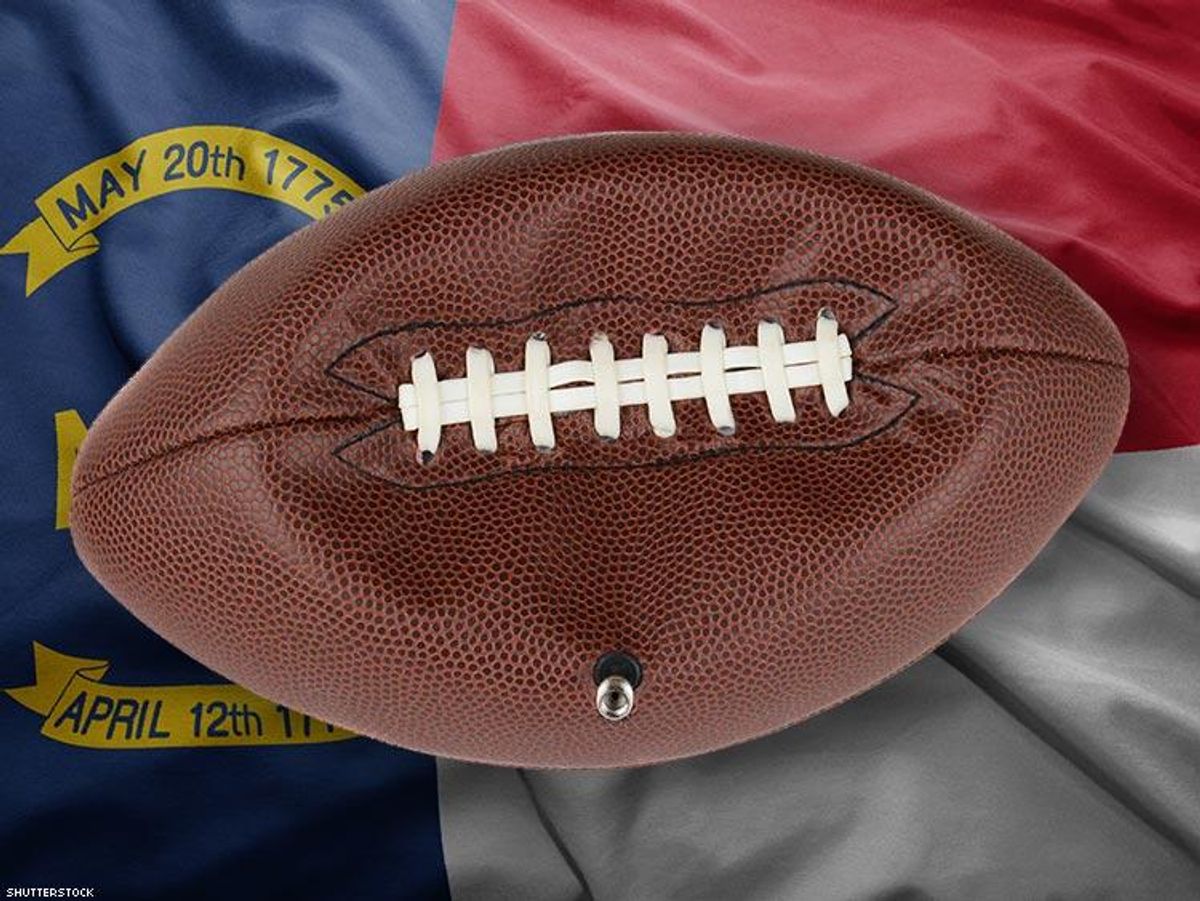All Rights reserved
By continuing to use our site, you agree to our Private Policy and Terms of Use.
The Atlantic Coast Conference is the latest sporting association to pull out of North Carolina over House Bill 2, the state's controversial anti-LGBT law.
The ACC announced Wednesday that all championship games would be moved for the 2016-2017 season. This decision affects 15 universities, including Clemson, Duke, Florida State, and the University of North Carolina, and will lead to the loss of 10 championships. These games include title matches in men's baseball, women's basketball, men's golf, and women's soccer.
The Dr. Pepper ACC Football Championship, scheduled to be held in Charlotte this December, was expected to bring in an estimated $32 million for the state.
James Clements, chair of the ACC Council of Presidents, said that the decision to relocate the games was in direct response to HB 2 -- which he said is counter to the ACC's goal of furthering inclusivity and diversity in its sports.
"The ACC presidents engaged in a constructive, wide-ranging and vigorous discussion of this complex issue over the past two days," Clements said in a press release. "The decision to move the neutral site championships out of North Carolina while HB2 remains the law was not an easy one but it is consistent with the shared values of inclusion and non-discrimination at all of our institutions."
Trending stories
Currently, discrimination is the law of the land in North Carolina.
In March, the state introduced, debated, and signed into law HB 2, which mandates that transgender people use public restrooms (in government buildings) that do not match their gender identity. HB 2 also prevents localities from enacting or enforcing LGBT-inclusive nondiscrimination laws or setting a minimum wage higher than the state's.
This decision is only the latest protest against North Carolina's anti-LGBT law.
The NBA announced in August that it would be moving next February's All-Star Game from Charlotte. Earlier this week, the NCAA followed suit by relocating seven championship games out of the Tar Heel State for the upcoming year. The Williams Institute, a think tank at the University of California, Los Angeles, estimated that HB 2, if not repealed, will cost the state $5 billion in further loss of revenue.
The blow, however, is also a cultural one. The state has hosted 251 men's basketball tournament matches, more than any other state, in the past 65 years. This ACC decision represents a way of life that's being threatened by continued anti-LGBT discrimination.
"College sports has been the biggest thing in North Carolina going back 70 years," University of Richmond professor Thad Williamson told NBC News. "For most people, it's the thing that bonds families together. Seats get passed down to grandkids. It's a huge part of everyday life in North Carolina."
Tami Fitzgerald, executive director of the North Carolina Values Coalition, disagreed with Williamson, doubting that the ACC decision would have much of an impact on the state.
"I don't think it's going to have an effect," Fitzgerald told WRAL, a TV station in Raleigh. "In fact, I think it's going to make people reconsider whether it's that important to go to a basketball game or a soccer match or a football game. The ACC and the NCAA are trying to bully the state of North Carolina into us coming to a radical sexual agenda that they're pushing off on the state."
North Carolina Gov. Pat McCrory, who has stood by the anti-LGBT law, added that other sporting associations should wait until the bathroom issue is decided by federal courts rather than joining the protest.
"The issue of redefining gender and basic norms of privacy will be resolved in the near future in the United States court system for not only North Carolina, but the entire nation," McCrory said in a statement. "I strongly encourage all public and private institutions to both respect and allow our nation's judicial system to proceed without economic threats or political retaliation toward the 22 states that are currently challenging government overreach." He was apparently referring to challenges to the U.S. Department of Education's guidance on accommodating transgender students as well as North Carolina's suit against the Department of Justice because of its stance against HB 2.


















































































